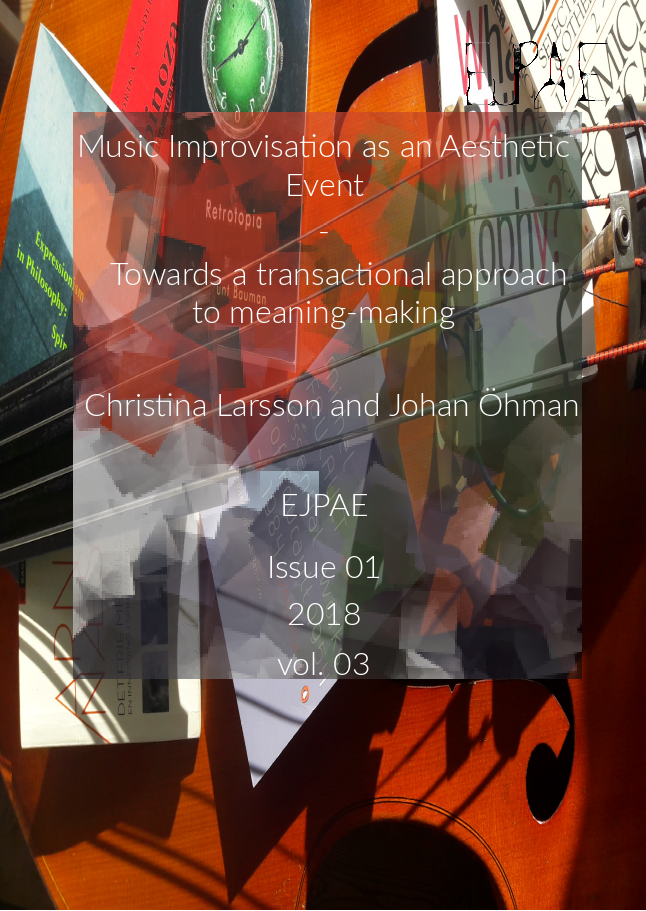Music Improvisation as an Aesthetic Event
Towards a transactional approach to meaning-making
Keywords:
improvisation, aesthetic experience, aesthetic event, Practical Epistemology Analysis, meaning-makingAbstract
Improvisation in general music education is still a somewhat underdeveloped practice. Moreover, attempts to justify its place in the curriculum have often focused solely on its (measurable) outcomes. In this article, we claim that a deeper understanding of students’ meaning-making processes in experiences of improvisation is necessary in order to develop improvisation practice and research. The purpose of this article is to offer a music education perspective on improvisation based on John Dewey’s transactional perspective on aesthetic experience and meaning-making. Related to this, we suggest and illustrate a Practical Epistemology Analysis (PEA) as a way of analysing meaning-making in music improvisation within general music education. The method of analysis is illustrated by vignettes from video analyses of music lessons in two Swedish schools with pupils aged 9-10 and their free improvisations. The vignettes show how PEA enables analyses of situated meaning-making in the progress of the pupils’ improvisation activities. Further, the transactional perspective makes educational values of improvisation visible, such as musical and personal agency, and elucidates cognitive, embodied and ethical aspects of musical meaning-making.

Published
Issue
Section
License
EJPAE provides immediate open access to all its published content. Users do not need to register or pay to read content.
https://creativecommons.org/licenses/by/4.0/
Authors of content published in European Journal of Philosophy in Arts Education (EJPAE) retain the copyright to their works. Content is free to be used by anyone as long as you "[...] give appropriate credit, provide a link to the license, and indicate if changes were made. You may do so in any reasonable manner, but not in any way that suggests the licensor endorses you or your use." and "No additional restrictions — You may not apply legal terms or technological measures that legally restrict others from doing anything the license permits." (from the Creative Commons licence agreement)
EJPAE does not charge any author or publication fees.
Authors are encouraged to deposit the final published version of their article for self-archiving (author's personal website) and/or archiving in an institutional repository immediately upon publication.




